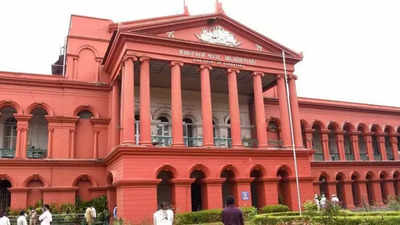- News
- City News
- bengaluru News
- Muda case ruling: Siddaramaiah’s family, prima facie, got undue benefits, says Karnataka HC
Trending
Muda case ruling: Siddaramaiah’s family, prima facie, got undue benefits, says Karnataka HC
The high court has observed prima facie evidence suggesting that CM Siddaramaiah's family members gained undue advantage in Mysuru site allotments. Compensation land was allocated in a prime city area for land relinquished far away, prompting concerns of corruption and the need for further investigation.

"Section 7 of the Prevention of Corruption Act is the soul of the allegation," Justice M Nagaprasanna noted in his order.

The judge pointed out that not a single instance was cited to show that a person who relinquished land in Kesare Grama (village) was granted compensatory land in an upscale area in Mysore City. "While it is true that compensatory land by way of sites was granted to others, it is only in the case of Siddaramaiah's wife that the sites were granted in Vijaynagar III Stage," he added.
The judge goes on to say that for undue influence, "there need not be a recommendation or order passed by a public servant". "The petitioner is undoubtedly behind the smoke screen for every benefit that has flown to the wife of the petitioner," the judge said, adding that, "The guidance value for sites allotted is Rs 8,24,000, but... the total market value of 14 sites is Rs 55,80,00,750 — close to Rs 56 crore."
He said the Muda resolution which was the basis for grant of sites was withdrawn as it was contrary to law and what happens to the 14 sites that are granted based on an illegal resolution is a matter requiring investigation.
Justice Nagaprasanna also pointed out that Siddaramaiah was deputy CM in 1996-1999 and 2004-2005 and CM from 2013 to 2018. "Intermittently on and off, the petitioner has been at the helm of affairs... It is rather difficult to accept that the beneficiary of the entire transaction, to which compensation determined at Rs 3.56 lakh becomes Rs 56 crore, is not the family of the petitioner. In the decision-making process, at a certain time, the petitioner's son was a party to the meeting which took a decision finally to allot 14 sites," the judge said, explaining why the contention that the petitioner was not behind everything is too bleak meriting any acceptance, albeit prima facie.
End of Article
FOLLOW US ON SOCIAL MEDIA










